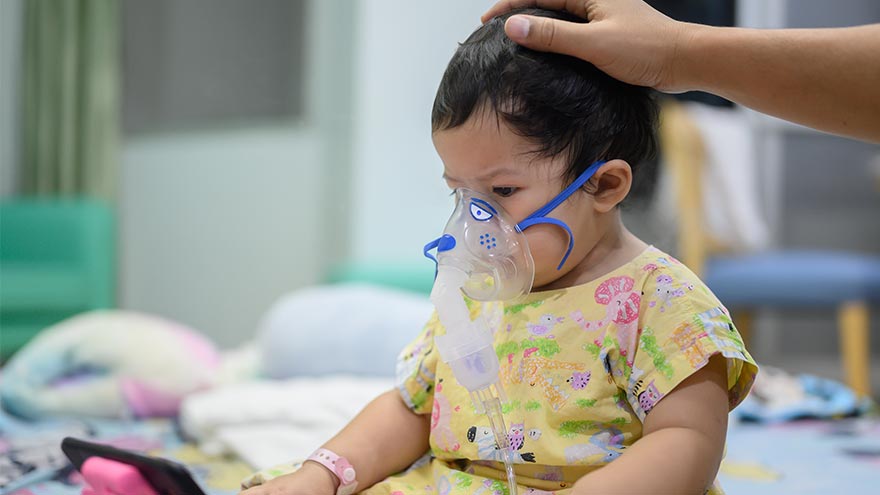What You Need to Know About RSV
November 10, 2022

Respiratory syncytial virus, also known as RSV, is a common respiratory virus that impacts the lungs and breathing pathways. The virus can be dangerous for infants and young children and is also concerning for older adults.
While most older kids and adults only experience cold-like systems and recover in a week or two, an estimated 58,000-80,000 children younger than 5 years old are hospitalized due to RSV each year, and in 2022 healthcare organizations across the country are experiencing higher infection rates than in years past.
"RSV typically peaks in the winter, but this season we are seeing an earlier surge in cases,” said Dr. Vanessa Slots, the Division Chief of General Pediatrics at Renown. “Infants who are infected with RSV almost always show symptoms. Call your healthcare provider immediately if your child is having difficulty breathing, is not drinking enough fluids or is experiencing worsening symptoms.”
Symptoms of RSV:
- Runny nose
- Decrease in appetite/inability to drink
- Dry diapers, an indication of dehydration
- Cough, which may progress to wheezing or difficulty breathing
- Irritability (most common in very young infants)
- Decreased activity (most common in very young infants)
- Decreased appetite (most common in very young infants)
- Apnea, pauses in breathing for more than 10 seconds (most common in very young infants)
What to do if you think your child has RSV:
Call your pediatrician! If you suspect your child might have RSV, consulting their healthcare provider is the best first line of defense. From here they will help you build an appropriate treatment plan for child. Keep in mind that many pediatrician offices offer 24/7 call lines.
If your child is experiencing retracted breathing (when the area between the ribs and in the neck sinks in when a person attempts to inhale), dehydration (not drinking and decrease in wet diapers) or apnea (pauses in breathing for more than 10 seconds) please call 911 or go to the closest emergency room.
Treating RSV from home:
- Clear your child's nasal pathway with a bulb syringe or saline spray/drops
- Stay home and rest
- Drink plenty of fluids to prevent dehydration
- Manage fever with fever reducers such as acetaminophen or ibuprofen
Preventing the spread of RSV:
Good news! The biggest RSV prevention tips are almost identical to what we’ve already been doing to prevent COVID-19 – so hopefully, these actions are already second nature.
If you have young children or regularly encounter younger children, remember to:
- Wash your hands often
- Keep your hands off your face
- Avoid close contact with sick people
- Cover your coughs and sneezes
- Clean and disinfect surfaces
- Stay home when you are sick
- Get vaccinated against the flu and COVID-19 to prevent more serious co-infections
RSV is dangerous for older adults, Too
Older adults – especially those over 65 years old, have chronic heart or lung disease or a weakened immune system – also need to be hyper-vigilant about RSV.
If you or your loved one is in the older adult at-risk group, remember to follow the above prevention measures and talk to your healthcare provider immediately if you suspect you have RSV.
*Data courtesy of the Center for Disease Control and Prevention.